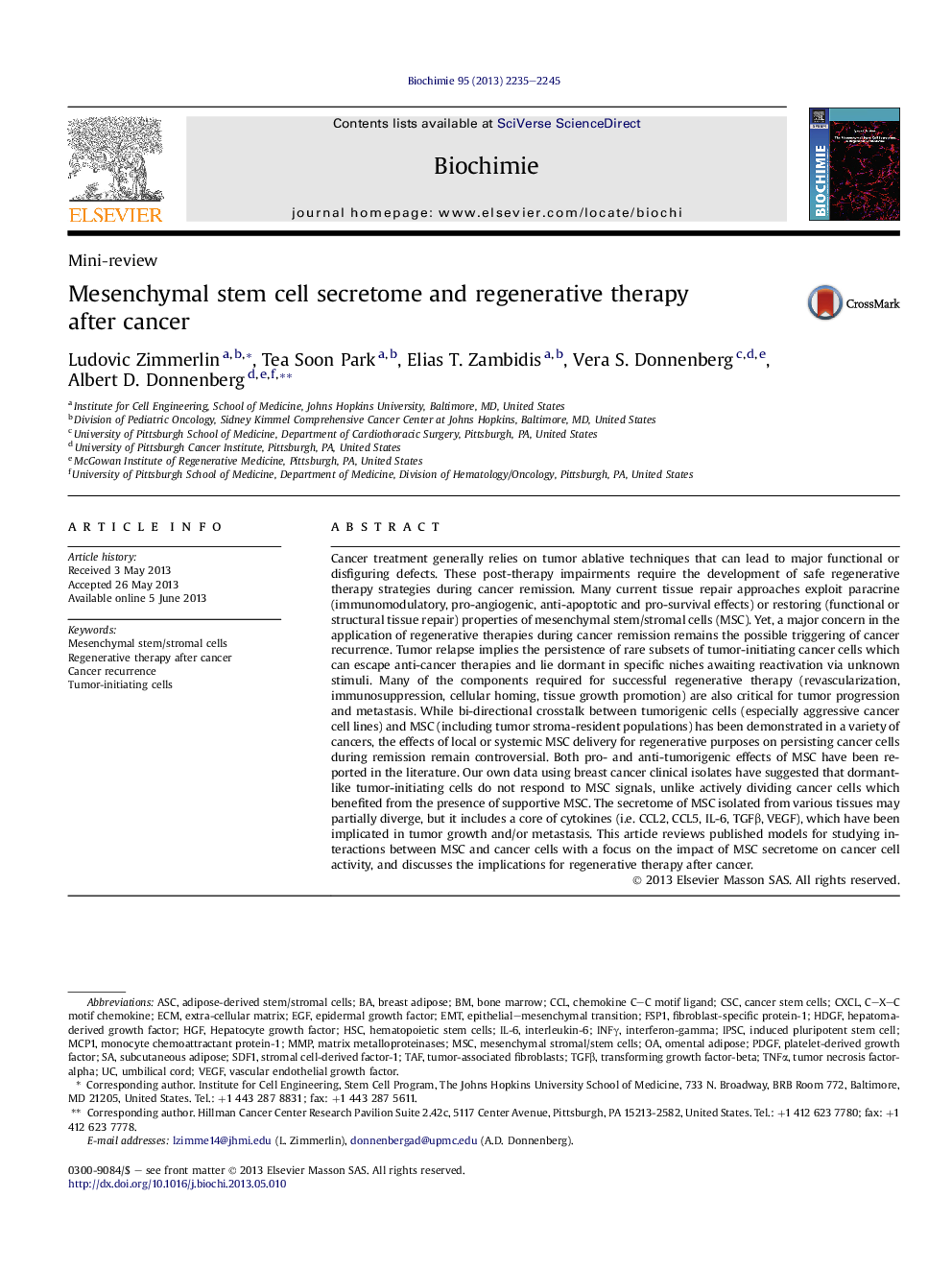| Article ID | Journal | Published Year | Pages | File Type |
|---|---|---|---|---|
| 10803652 | Biochimie | 2013 | 11 Pages |
Abstract
Cancer treatment generally relies on tumor ablative techniques that can lead to major functional or disfiguring defects. These post-therapy impairments require the development of safe regenerative therapy strategies during cancer remission. Many current tissue repair approaches exploit paracrine (immunomodulatory, pro-angiogenic, anti-apoptotic and pro-survival effects) or restoring (functional or structural tissue repair) properties of mesenchymal stem/stromal cells (MSC). Yet, a major concern in the application of regenerative therapies during cancer remission remains the possible triggering of cancer recurrence. Tumor relapse implies the persistence of rare subsets of tumor-initiating cancer cells which can escape anti-cancer therapies and lie dormant in specific niches awaiting reactivation via unknown stimuli. Many of the components required for successful regenerative therapy (revascularization, immunosuppression, cellular homing, tissue growth promotion) are also critical for tumor progression and metastasis. While bi-directional crosstalk between tumorigenic cells (especially aggressive cancer cell lines) and MSC (including tumor stroma-resident populations) has been demonstrated in a variety of cancers, the effects of local or systemic MSC delivery for regenerative purposes on persisting cancer cells during remission remain controversial. Both pro- and anti-tumorigenic effects of MSC have been reported in the literature. Our own data using breast cancer clinical isolates have suggested that dormant-like tumor-initiating cells do not respond to MSC signals, unlike actively dividing cancer cells which benefited from the presence of supportive MSC. The secretome of MSC isolated from various tissues may partially diverge, but it includes a core of cytokines (i.e. CCL2, CCL5, IL-6, TGFβ, VEGF), which have been implicated in tumor growth and/or metastasis. This article reviews published models for studying interactions between MSC and cancer cells with a focus on the impact of MSC secretome on cancer cell activity, and discusses the implications for regenerative therapy after cancer.
Keywords
CSCFSP1adipose-derived stem/stromal cellsSDF1HDGFfibroblast-specific protein-1HGFCXCLPDGFCCLMCP1INFγIPSCMSCTGFβMesenchymal stromal/stem cellsASCMMPEGFHSCTNFαIL-6ECMinterferon-gammainterleukin-6umbilical cordtransforming growth factor-betatumor necrosis factor-alphaEMThematopoietic stem cellsInduced pluripotent stem celltumor-initiating cellsMesenchymal stem/stromal cellsCancer stem cellsepidermal growth factorHepatocyte growth factorhepatoma-derived growth factorCancer recurrencestromal cell-derived factor-1Vascular endothelial growth factorVascular Endothelial Growth Factor (VEGF)platelet-derived growth factorTumor-associated fibroblastsextra-cellular matrixMatrix metalloproteinasesbone marrowTAFmonocyte chemoattractant protein-1Epithelial–mesenchymal transition
Related Topics
Life Sciences
Biochemistry, Genetics and Molecular Biology
Biochemistry
Authors
Ludovic Zimmerlin, Tea Soon Park, Elias T. Zambidis, Vera S. Donnenberg, Albert D. Donnenberg,
